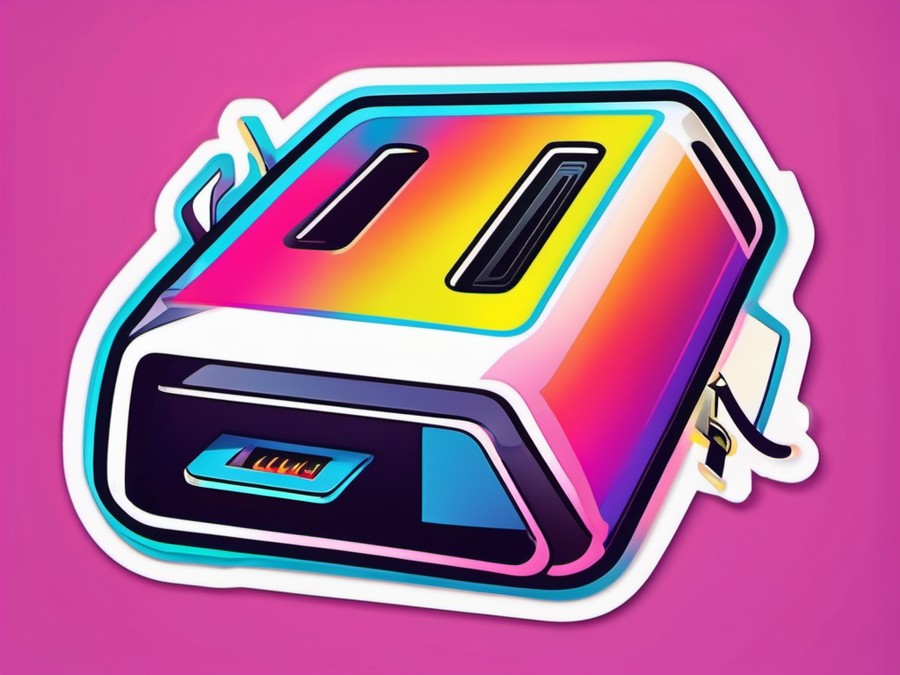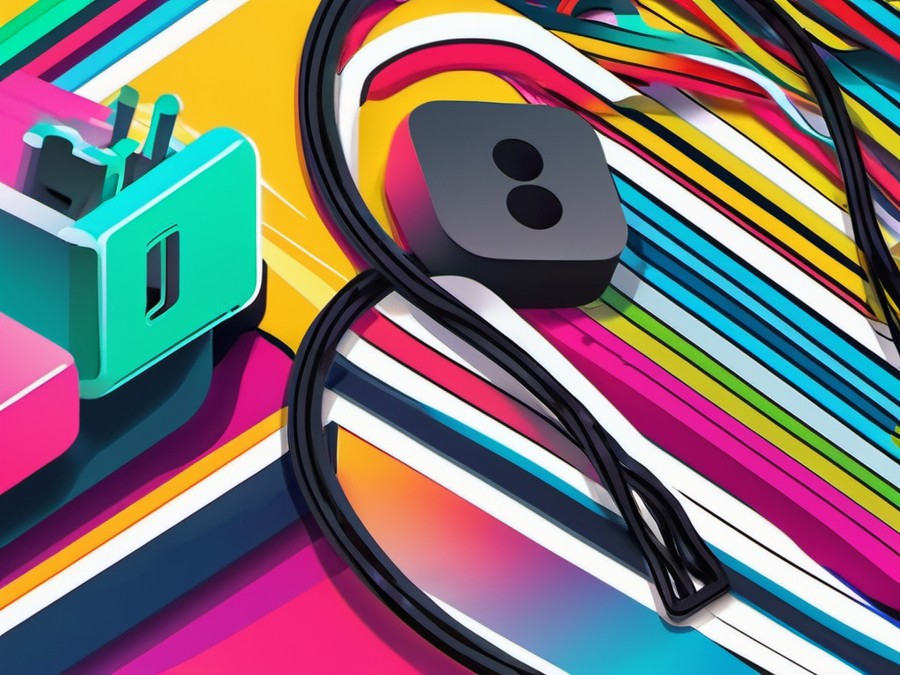· Charlotte Will · Chargers & Cables · 8 min read
What is a Type-C Cable and Why Do You Need One?
Discover the benefits and advantages of using a Type-C cable for faster charging, high-speed data transfer, and improved user experience. Learn why investing in a Type-C cable is essential for future-proofing your technology setup and how to choose the right cable for your needs.

In the ever-evolving world of technology, staying connected and charged is more important than ever. That’s where Type-C cables come in—offering faster charging, quicker data transfer, and a more user-friendly experience. But what exactly is a Type-C cable, and why should you invest in one? Let’s dive into the details to find out.
Introduction to Type-C Cables
What is a USB Type-C Cable?
A USB Type-C cable is the latest iteration in USB technology, designed to replace the older USB connectors with a more versatile and efficient solution. The Type-C connector is smaller, slimmer, and reversible, making it easier to use without worrying about which side is up.
What Makes Type-C Different?
The reversible connector is one of the standout features of Type-C cables. Unlike traditional USB connectors, which have a specific orientation for insertion, Type-C cables can be plugged in either way. This simple design improvement greatly enhances user experience, reducing frustration and the risk of damaging ports.
How Type-C Cables Work
Power Delivery and Fast Charging
One of the most significant benefits of Type-C cables is their support for Power Delivery (PD). PD allows the cable to handle higher power outputs, essential for fast charging modern devices like smartphones and laptops. With PD-enabled cables, you can charge your device quickly and efficiently without the worry of overheating or damaging components.
Data Transfer Speeds
In addition to superior charging capabilities, Type-C cables also excel in data transfer speeds. Depending on the specific cable, you can enjoy data transfer rates up to 10 Gbps, which is significantly faster than older USB standards. This makes it ideal for transferring large files, backing up data, or connecting peripherals with minimal lag.
Understanding USB 3.1 and USB 3.2
USB 3.1 and USB 3.2 are the latest iterations of USB technology that support faster data transfer rates. USB 3.1 offers speeds up to 5 Gbps, while USB 3.2, the newer standard, can achieve up to 10 Gbps or even higher with USB4. Understanding these standards can help you choose the best cable for your needs.
The Benefits of Using a Type-C Cable
Faster Charging Times
Fast charging is a feature that has become increasingly important with the rise of powerful, portable devices. Type-C cables support fast charging protocols like Power Delivery, ensuring that your device gets the juice it needs in record time. Whether you’re charging a tablet, smartphone, or even a laptop, you’ll notice the difference.
Real-World Examples of Fast Charging
Imagine you’re on the go and your smartphone battery is running low. With a Type-C cable supporting fast charging, you can get a significant boost in just minutes. This is particularly useful for professionals who need to stay connected throughout the day.
Enhanced Data Transfer Rates
High-speed data transfer is another significant advantage of using a Type-C cable. If you often find yourself dealing with large files, such as high-resolution photos or videos, a Type-C cable can save you precious time. The rapid transfer speeds ensure that your data gets where it needs to be swiftly and efficiently.
Applications in Everyday Use
From backing up your laptop to transferring files between devices, the applications for high-speed data transfer are endless. Whether you’re a photographer, videographer, or just someone who likes to keep their devices organized, a Type-C cable can make your workflow smoother and more efficient.
Universal Compatibility
One of the biggest selling points of Type-C cables is their universal compatibility. Many modern devices, from smartphones to laptops and tablets, are now equipped with Type-C ports. This means you can use the same cable to charge and transfer data across different devices, simplifying your setup and reducing clutter.
Devices That Support Type-C
From Apple’s latest MacBooks to Google Pixel smartphones and Samsung Galaxy tablets, a wide range of devices now support Type-C. By investing in a Type-C cable, you’re future-proofing your technology setup, ensuring that you stay connected and charged for years to come.
Why Upgrade to a Type-C Cable?
Future-Proofing Your Technology
With Type-C becoming the standard in many devices, upgrading to a Type-C cable is a smart move for future-proofing. As more and more devices adopt this technology, having the right cable ensures that you won’t be left behind.
The Growing Adoption of Type-C
The adoption of Type-C is growing rapidly. Major tech companies are increasingly incorporating Type-C ports into their devices, acknowledging its benefits in terms of versatility and performance. By upgrading now, you’re staying ahead of the curve.
Improved User Experience
Type-C cables offer an improved user experience in numerous ways. The reversible connector makes plugging in your device a breeze, while the high-speed data transfer and fast charging capabilities ensure that you’re always connected and powered up.
No More Fumbling with Cords
Say goodbye to the days of fumbling with cables and trying to figure out which way is up. With a Type-C cable, you can plug in your device with ease, reducing frustration and saving time. This simple improvement can make a big difference in your daily routine.
Saving Time and Money
Investing in a Type-C cable can also help you save time and money in the long run. With faster charging times, you won’t need to worry about running out of power during critical moments. Additionally, the versatility of a Type-C cable means you won’t need to buy multiple cables for different devices, reducing clutter and saving money.
The Cost-Effective Choice
Type-C cables are not only versatile but also cost-effective. By choosing a high-quality cable that supports both data transfer and fast charging, you’re getting the best of both worlds. This makes it a smart investment for anyone looking to streamline their technology setup.
Choosing the Right Type-C Cable
Key Features to Look For
When shopping for a Type-C cable, there are several key features to look out for. First, ensure that the cable supports Power Delivery (PD) if you need fast charging capabilities. Additionally, check the data transfer speed to make sure it meets your requirements.
Certified Cables vs. Generic
Not all Type-C cables are created equal. Opt for certified cables to ensure that you’re getting a high-quality product that is safe and reliable. Certified cables are tested to meet specific standards, providing peace of mind and better performance.
Popular Type-C Cable Options
There are numerous Type-C cable options on the market, each with its own set of features. Some popular choices include cables that support USB 3.2, ensuring high-speed data transfer, and those with built-in Power Delivery for fast charging.
Best Picks for Fast Charging and Data Transfer
When selecting a Type-C cable, consider your specific needs. If you prioritize fast charging, look for cables with Power Delivery support. For data transfer, opt for cables that meet the USB 3.2 standard or higher. This will ensure that you get the best performance for your use case.
Common Questions About Type-C Cables
Are All Type-C Cables the Same?
Not all Type-C cables are the same. Some may support data transfer only, while others offer both data transfer and charging capabilities with different power ratings. Always check the specifications of the cable before purchasing to ensure it meets your needs.
Understanding Different Types of USB-C Cables
USB-C cables come in various types, each with its own set of features. For instance, some cables are designed for data transfer only, while others support both data transfer and fast charging. Understanding these differences can help you make an informed decision when shopping for a Type-C cable.
Can Type-C Cables Damage My Device?
While Type-C cables are generally safe, using generic or non-certified cables can pose a risk. Always opt for certified cables to ensure the safety and longevity of your devices. Additionally, be cautious when using cables with higher power outputs to avoid damaging sensitive electronics.
Safeguarding Against Incompatible Cables
To safeguard against incompatible cables, always check the specifications and ensure that the cable is certified. This will help protect your devices from potential damage and ensure that you’re getting the best performance possible.
Conclusion
In the fast-paced world of technology, having a Type-C cable at your disposal can make all the difference. From faster charging times to enhanced data transfer rates, the benefits of upgrading are clear. Whether you’re a tech enthusiast or simply looking to stay ahead of the curve, investing in a Type-C cable is an investment in your future connectivity needs. So why wait? Dive into the world of Type-C and experience the difference for yourself!
FAQs
FAQ 1: What is the main advantage of a Type-C cable over other USB cables? The primary advantage of a Type-C cable is its versatility, offering both fast data transfer and quick charging capabilities. Additionally, the reversible connector makes it far more user-friendly than traditional USB connectors.
FAQ 2: How do I know if my device supports a Type-C cable? Most modern devices, such as smartphones, laptops, and tablets, will have a Type-C port. Look for the oval-shaped port on your device to confirm compatibility.
FAQ 3: Can I use a Type-C cable to charge my phone faster? Yes, a Type-C cable supports Power Delivery (PD) which enables faster charging times. However, your device must also support PD for this to work effectively.
FAQ 4: Are all Type-C cables created equal? Not all Type-C cables are the same. Some may support data transfer only, while others offer both data transfer and charging capabilities with different power ratings. Always check the specifications of the cable before purchasing.
FAQ 5: Are there any safety concerns with using a Type-C cable? While Type-C cables are generally safe, using generic or non-certified cables can pose a risk. Always opt for certified cables to ensure the safety and longevity of your devices.
For more information, check out these related articles:




